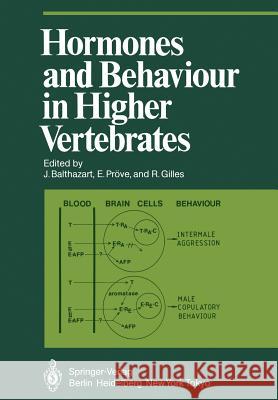Hormones and Behaviour in Higher Vertebrates » książka
Hormones and Behaviour in Higher Vertebrates
ISBN-13: 9783642692185 / Angielski / Miękka / 2011 / 489 str.
During the last decade, the study of behavioural endocrinology has gone through a very exciting phase. New technologies have appeared which have allowed us to answer new questions; the present book is a reflection of this progress. In the eariy1970's, the advent of steroid radioimmunoassays (RIA) for the first time permitted measurement of gonadal and adrenal steroids in small aliquots of plasma. It thus became possible to measure these hormones repeatedly in the same animals (Le., to undertake longitudinal studies) and also to assay them in small-sized animals such as the rat or the ring dove which had traditionally been favourite subjects for behavioural endocrinologists. With the RIA's, two major goals have been achieved. On one hand, it has been possible to ascertain that those hormones, whose action on behaviour had been postulated on the basis of gonadectomy and hor- mone therapy experiments, were actually present in adequate amounts in the intact animals at the time they were supposed to exert their ac- tion. On another hand, it has become feasible to measure the circulat- ing levels of steroids induced by treatments with exogenous hormones. This revealed that in a number of the early experiments the hormonal conditions which had been tested were completely outside the physi- ological range (plasma levels of steroids being several order of magni- tude above physiological levels after the injections) and a reinterpre- tation of the results was thus needed.











